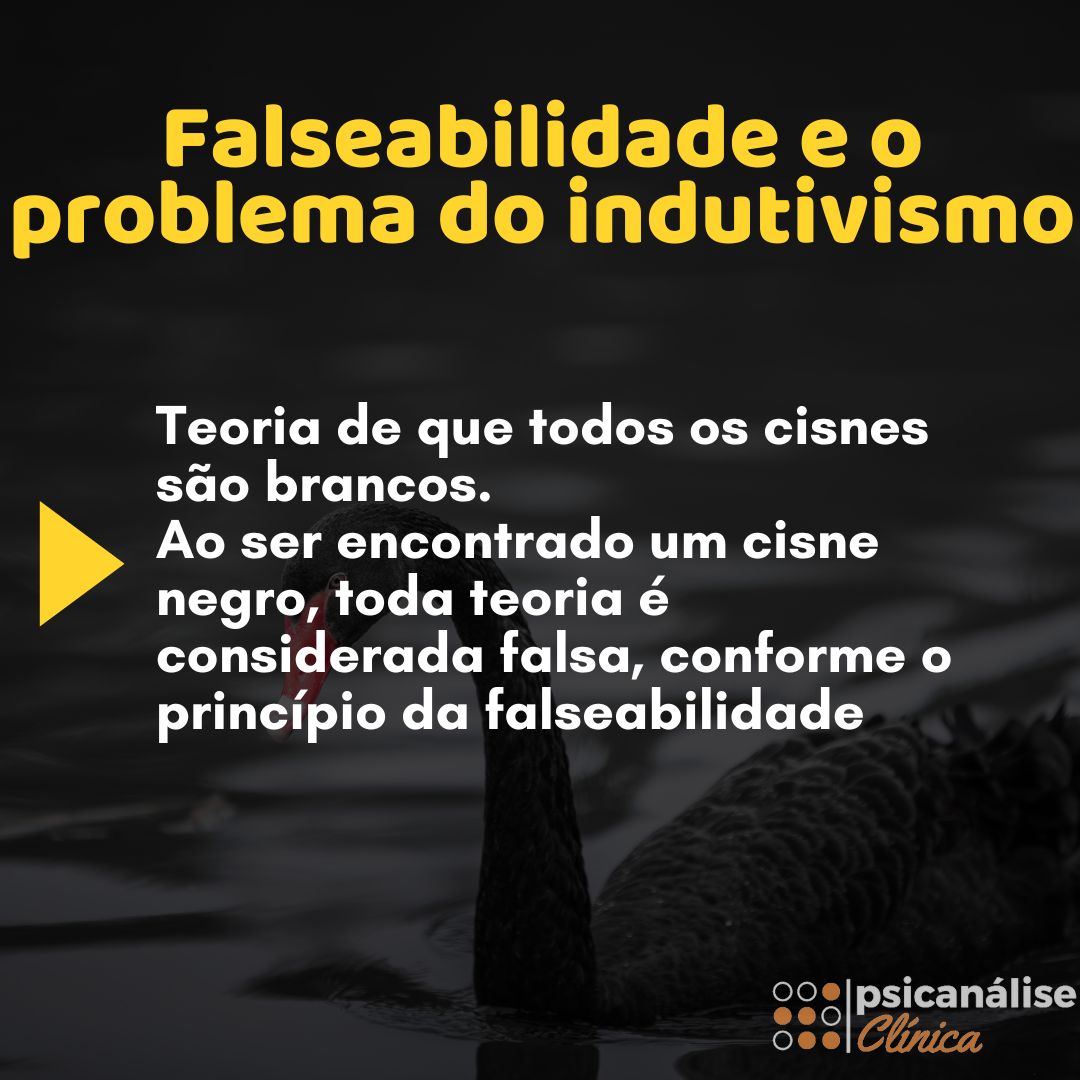Table of contents
Falseability is the term used in front of a statement, theory or hypothesis that can be falsified It was an innovative concept for the Philosophy of Science, proposed by Karl Popper, in the 20th century, in the 1930's. In short, falseability was a solution found to the problem presented by inductivism.
Thus, a general theory can be refuted to the extent that an experiment or observation is contrary to it, which basically explains what is called falsifiability in Karl Popper. Thus, Popper understands that theories cannot be applied to observation methods, but that theories must be falsified, that is, testable, susceptible to being disproved.
According to Karl Popper, a scientific theory must:
- be testable and thus,
- also be refutable by empirical evidence.
In this concept, it will not be a scientific theory if:
- cannot be tested: like a hermetic theory, closed in on itself and validated by itself, like a theory of a fictional or artistic work, or astrology;
- cannot be empirically observed: as a spiritual belief that has no testable basis in the material world.
Thus, it will be called pseudoscience when it does not meet these requirements.
Propper believes that an unfalsifiable scientific theory can have a lot of evidence and still remain scientific because it is open to counter-arguments and counterevidence. In other words, it is scientific if it allows itself to be tested and potentially refuted if new evidence is found.
Despite the criticism, falsifiability remains an influential idea in the philosophy of science and continues to be discussed and debated by scientists and philosophers.
What is falsifiability? Meaning of falsifiability
Falseability, in the meaning of the word, is that which can be falsified, that which can be the target of falsification, quality of that which is falsifiable. The etymology of the word falseability comes from falsifiable + i + dade.
For Popper, assertions in the philosophy of science can only be made in the sense of falsifiability, that is, theories can only be accepted if they are subject to error.
Philosophy of Science
Philosophy of Science deals with the foundations of science, its assumptions and implications. In other words, it deals with the fundamental basis of science, in the field of philosophical studies, focusing on understand, question, and improve scientific processes and methods.
Therefore, science generates an object of study, while philosophy seeks to understand if the object has been studied correctly and how it can be improved. So, Karl Popper acts in this context, of the philosophy of science, seeking to understand how science should behave.
Who was Karl Popper?
Karl Popper (1902-1994), Austrian philosopher, considered one of the most important names in 20th century Philosophy of Science mainly by introducing the principle of falsifiability.
See_also: What is Conscious, Pre-conscious and Unconscious?He studied physics, psychology, and mathematics at the University of Vienna, when he began teaching. He soon began working at the Vienna Institute of Pedagogy to improve his teaching methods. In 1928 he became a doctor of philosophy, when he came into contact with members of the Vienna Circle, when he began to discuss questions of logical positivism.
From then on, as a professional philosopher, he devoted himself to research, writing several books and articles, and became a member of several international philosophical organizations.
Falseability for Karl Popper
Karl Popper then brought into the field of philosophy of science the principle of falsifiability By introducing this principle, Popper solved the problem of inductivism, showing that inductive knowledge can lead to a false conception of science.
In this sense, by solving this problem, Popper brings relevant scientific progress in the 20th century, and can then be considered a philosophical and scientifically progressive thinker.
I want information to enroll in the Psychoanalysis Course .
Above all, in order to arrive at this process of falsifiability, we must first understand how a period of experimentation and observation works. It is, in short, where it is possible, for example, to move from a hypothesis to the confirmation of this hypothesis, and then to arrive at a theory.
Read Also: IQ Test: What is it?In short, science is a process of inductive knowledge, since in order to arrive at a certain knowledge it is often necessary to experiment with specific cases in order to formulate a general theory. In other words, v ou start from minor cases and by observation arrive at a general theory.
This is where the problem with inductivism lies: how can you start from particular cases to formulate a universal theory, since you often cannot encompass the totality of facts or things?
Fallibility Theory and the problem of inductivism
So, the theory of falsifiability in Karl Popper solves this problem of inductivism For you cannot reduce something, bringing it out as universal, if its experiences are not universal, but can be reduced from particulars.
To exemplify the problem of inductivism, the classic example of the swan is used: it has been observed that swans in nature are white, leading to the theory that all swans are white, but that does not prevent the existence of a black swan, for example.

So, once the black swan is found, the theory is considered false, according to the principle of falsifiability. Therefore, based on this idea, for Karl Popper, science cannot be based on inductivism, because if it were, it would bring about an insecure scientific basis.
Therefore, for falsifiability, a false singular of a universal set can falsify the universal. In other words, if you formulate a universal theory and one of the singulars are false, the whole system of the theory will thus be considered false. That is, If there is a black swan in nature, the theory that all swans are white is false.
Importance of the Principle of falsifiability for science
However, Karl Popper's falsifiability allows for the progress of science, showing that it is not a cumulative knowledge process, but a progressive one. In other words, the issue is not an accumulation of ideas or theories, but their progress, always aiming at a higher stage of scientific knowledge.
See_also: La Casa de Papel Mask: Tribute to DalíFalsehood, above all, is a way to take away the rigidity that underlies human thought, especially about customs and definitions, taking away the false idea of security about theories and concepts. In the meantime, falsifiability demonstrates that one cannot reach an absolute truth Thus, one should understand a scientific concept as momentary, not permanent.
In other words, a theory can only be qualified as scientifically valid when there are constant attempts to falsify it, and not attempts to verify its veracity. Thus, the progress of science is dependent on falsifiability.
A good example of a scientific theory is Theory of Gravity However, to this day, all attempts to disprove this theory have been frustrated. Nevertheless, it is worth saying that there will never be an exact guarantee that in different circumstances there is no gravity and the apple will fall upwards.
I want information to enroll in the Psychoanalysis Course .
However, back to the example of the swans, until 1697 it was considered that all swans were white, this was the universal rule. However, in this year black swans were found in Australia, so the theory was totally invalidated. Thus, it would be possible today to say that most swans are white, but not all swans are white.
Therefore, this is a way to demonstrate how the rigidity of concepts can underlie customs and definitions about life. Our thoughts, for the most part, are based on constancy, and, consequently, we prefer things to stay as they are, because this brings us a certain security, even if illusorily.

In this sense, the falsifiability shows that there is no absolute truth about things, and people should be humble enough to understand that scientific knowledge can be changed. In this way, a proposition can only be considered significant for science when attempts are constantly being made to disprove it.
How does psychoanalysis stand in relation to falsifiability?
There is a debate whether psychoanalysis is a science or a knowledge, psychoanalysis is inscribed in scientific discourse So, it would not be something dogmatic, mystical or doctrinaire, but rather a theory that can be revised and even refuted in whole or in parts. Even the idea of what the unconscious is can be contradicted or improved, in the existence of new evidence.
Read Also: Book Day Special: 5 Books that talk about PsychoanalysisThe same can be said about the psychoanalyst's work. If he bases himself on superficial ideas and judges his patients through hasty universalizations, the psychoanalyst will be performing what Freud called wild psychoanalysis and what Karl Popper called non-falsifiability .
Falseability introduces a potentially "flawed" or "incomplete" dimension, a perspective that has fueled the sciences and the human for millennia.
If you liked this article, you are possibly a person who is interested in the study of the human mind, so we invite you to get to know our Training Course in Clinical Psychoanalysis. In this study you will be able to understand how the human mind works, so, among the benefits, is the improvement of your self-knowledge and improvement in your interpersonal relationships.
